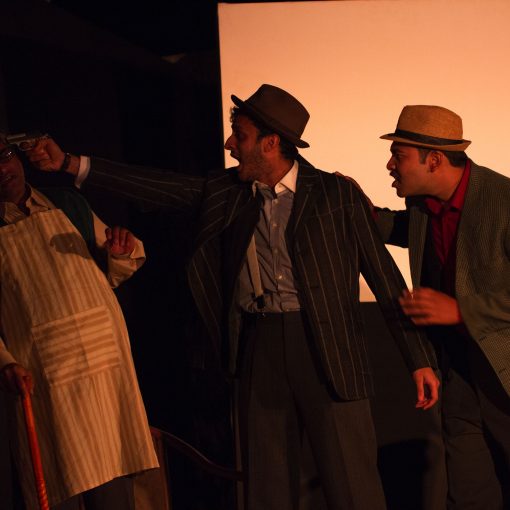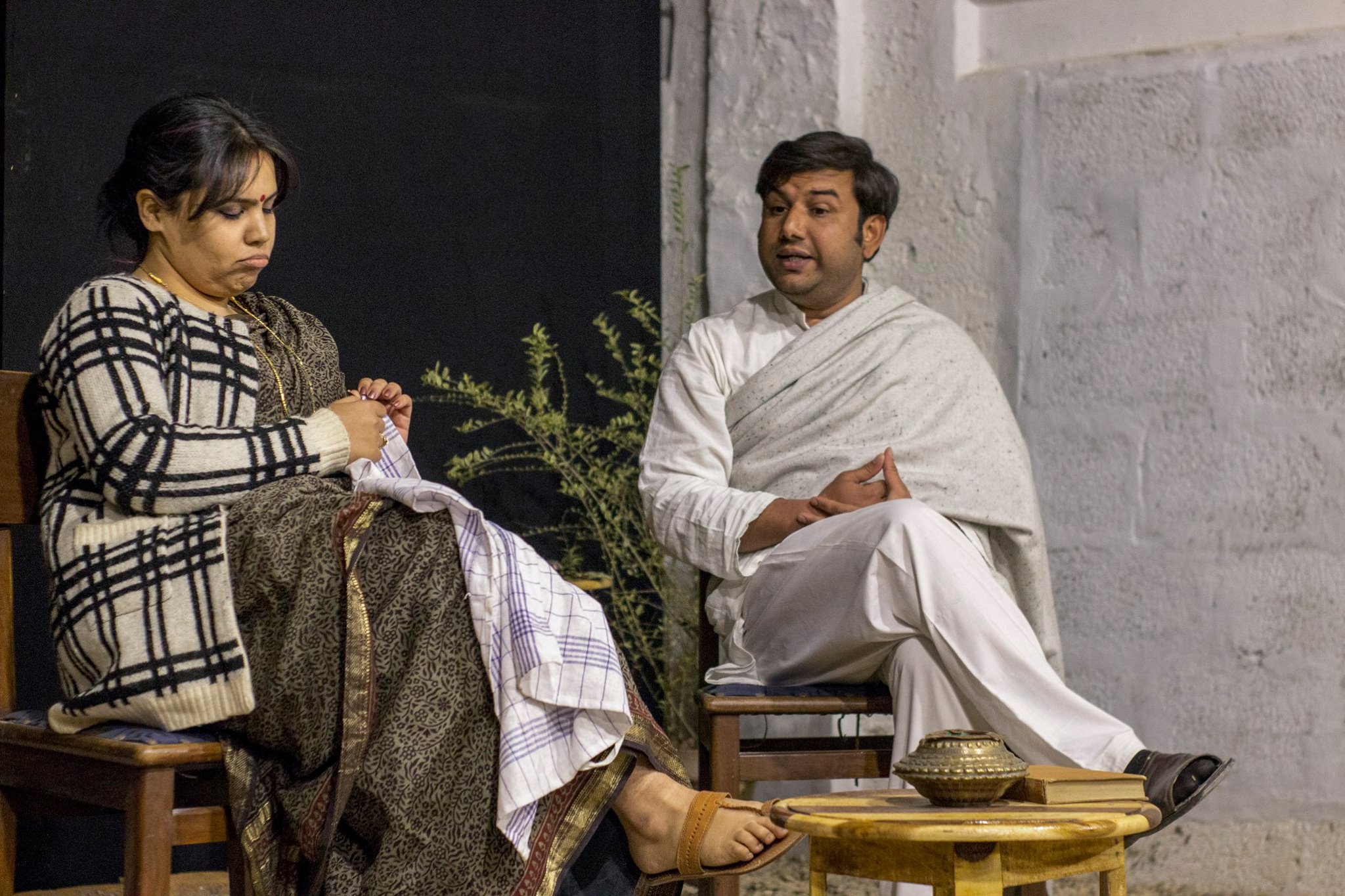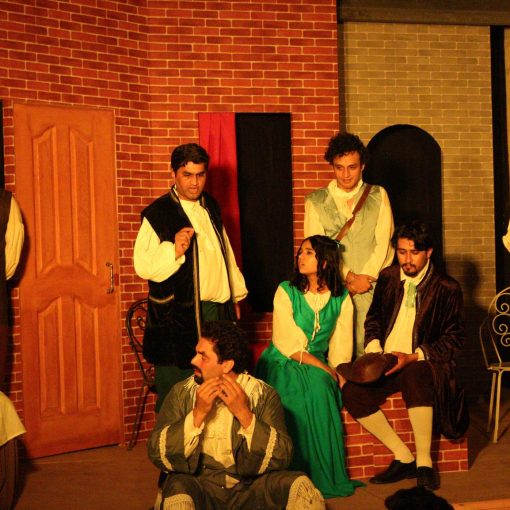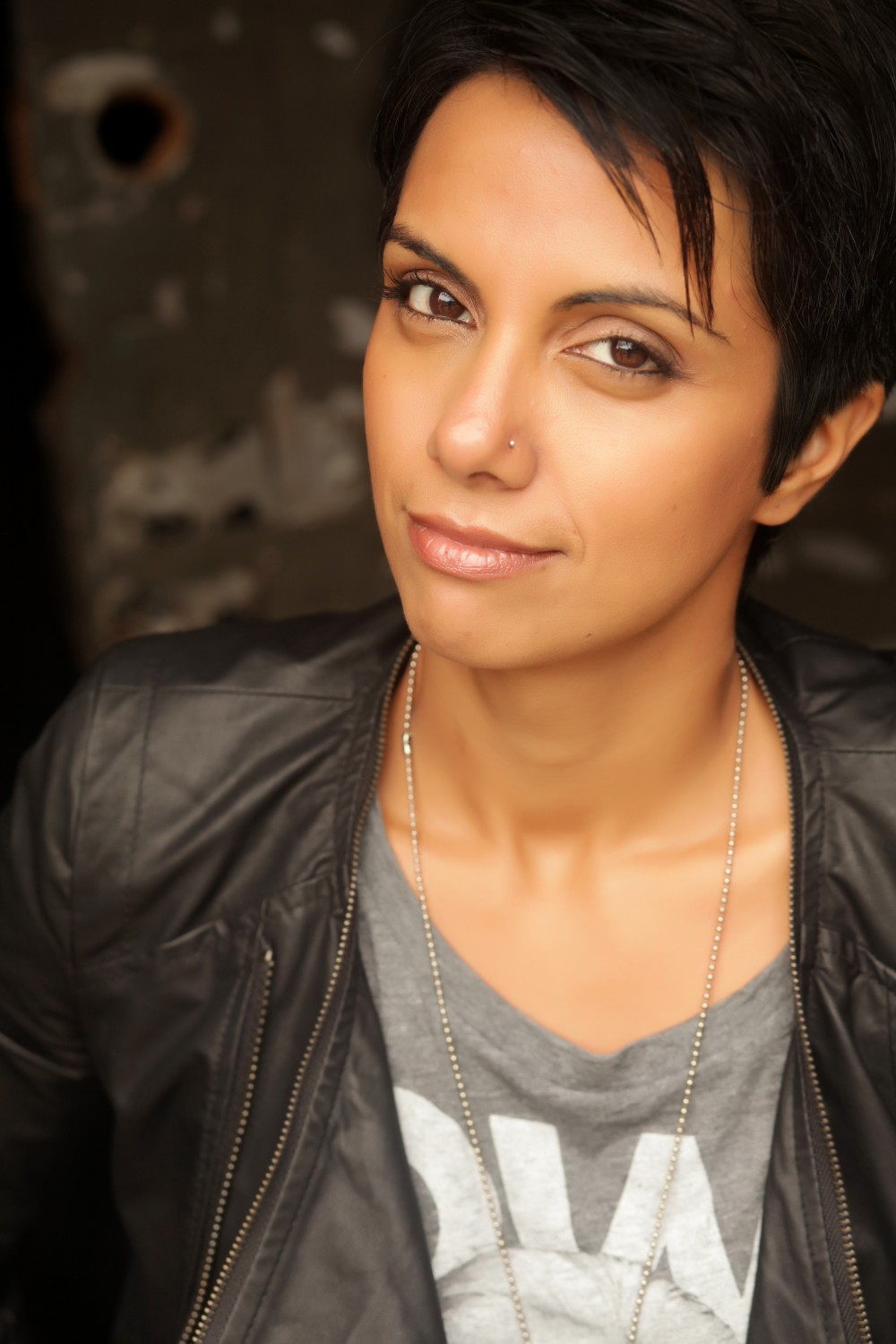Theatre Wallay organized ‘Monologues in Process’ to give a glimpse of its project “Voices of Partition” to the select audiences. The event was held at USEFP premises on January 23, 2015. It was attended by around 50 people from different walks of life.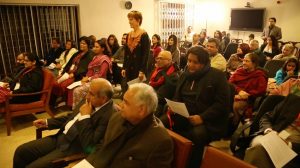
The monologues were based on some stories of Partition survivors collected in the preceding weeks. Selected parts of the stories were developed into monologues during a workshop that lasted for 5 days. The workshop was facilitated by Ms. Kathleen Mulligan and Sarah Herber-Johnson – Fulbright Scholars from USA. Ms Mulligan is a voice and speech specialists teaching at Ithaca College, New York, while Ms Sarah is a practitioner of Theatre of the Oppressed.
Every participant wrote his/her own monologue. The initial drafts were shared with the rest of the team, and the facilitators, who gave their feedback, and helped improve them. The monologues covered perspectives of people of various faiths on partition.
It opened with the performance of Hishaam Muzaffar, who presented the predicament of a survivor who has to recall the difficult times of partition. It is not easy to tell the incidents which bring such painful memories with them.
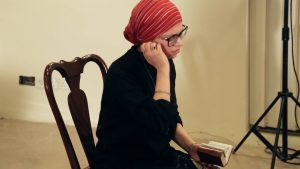 Ms Rabia Pasha described the problems faced by a family traveling through train from Delhi to Lahore. The train is attacked on the way to Lahore, and they are stranded on a small railway station for over a week. Usman recreated the scene of a Muslim who is paranoid about his community’s security, and has serious doubts about his Hindu neighbors with whom he has spent really good time before the communal violence set in. By the end, he realizes that his paranoia is baseless.
Ms Rabia Pasha described the problems faced by a family traveling through train from Delhi to Lahore. The train is attacked on the way to Lahore, and they are stranded on a small railway station for over a week. Usman recreated the scene of a Muslim who is paranoid about his community’s security, and has serious doubts about his Hindu neighbors with whom he has spent really good time before the communal violence set in. By the end, he realizes that his paranoia is baseless.
Rabia Ajaib’s monologue described the pain of an accidental murderer, who, during the highly anarchic time of partition, killed a Sikh neighbor. He is unable to live with the guilt. Safeer Khan’s monologue presented the situation of a person who had to migrate twice – First in 1947, from Allahabad to Karachi, and then in 1971 from Dhaka to Karachi. He hides in his kitchen, and hears the people planning to murder him. Ikram Khan narrated the story of a farmer who settled in Chakwal and is better off than his hosts within a few years, but his longing for his native land would not go away.
Kazim Pasha narrated the scene of a child who, from his window, saw the murder of a Sikh old man. Ammar played a Christian Professor who has a Hindu name, and is caught in Muslim dominated Lahore city at the time of Partition, while Fizza Hasan recreated the scene of an old lady who returned to Panipat after one year to collected her valuable belongings she had to leave at the time of Partition.

It was a very well-received event. Some of the people whose stories were narrated were sitting in the audience, which generated a lot more interest. People were all praise for the performers – we call it performance because it was something more than mere reading of a text. It has generated a lot of interest in the audiences about the final performance, which would be held toward the end of April in Islamabad, and would be followed, next week, by another in Lahore.

